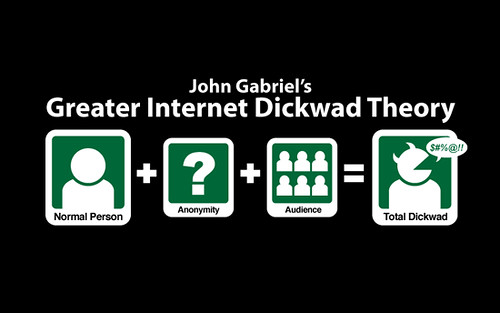With the advent of online forums has come the concept of internet trolls. If you are reading this, you know what they are. In fact, anyone that has spent any amount of measurable time on an internet discussion board has experienced them first-hand.
The phenomena of trolling has been discussed, thoughtfully, both online and offline.
But what happens when sometimes comical behaviour on the intertubes becomes predatory and murderous offline?
William Melchert-Dinkel, 48, was charged in April with two counts of aiding suicide for allegedly advising and encouraging two people to take their own lives. Mark Drybrough, 32, of Coventry, England, hanged himself in 2005, and 18-year-old Nadia Kajouji of Brampton, Ontario, jumped into a frozen river in 2008.
Melchert-Dinkel declined a jury trial and left his fate to a judge, who issued his verdict Tuesday.
Rice County District Judge Thomas Neuville once again rejected Melchert-Dinkel’s argument that his actions amounted to free speech. Melchert-Dinkel was not merely advocating ideas about suicide, Neuville said, but engaging in “lethal advocacy.” Neuville scheduled his sentencing for May 4.
If that wasn’t enough how lenient the sentence handed down was, apparently Melchert-Dinkel is appealing!
Which raises an interesting point, did Judge Neuville, or other judges (when most certainly other cases will come up) truly understand the internet, online trolling and when it crosses into criminal behaviour?
In an op-ed today in the Toronto Star, Heather Malick writes:
Melchert-Dinkel says he talked online with about 20 desperate people and entered fake suicide pacts with 10 of them. Five died at his urging, he claims, not including Kajouji and Drybrough, and we’ll never know their names.
The Internet was a gift to people like Melchert-Dinkel. So was the ignorance of Rice County district court judge Thomas Neuville. The nature of online communication – a new technology that has altered human relations forever – eluded the judge who lumped the case in with other assisted suicide cases, only six of which have been successfully prosecuted in the U.S. since 1991.
In fact, Melchert-Dinkel had found a fresh new way to murder, far beyond the ken of a 61-year-old rural judge. To understand this killer, the judge had to grasp the dark side of online anonymity, instant messaging and complete unfettered freedom, how words are like loaded guns appearing on a screen.
Either way, it certainly raises some serious legal and ethical questions about the role technology is playing in our lives.

12 comments